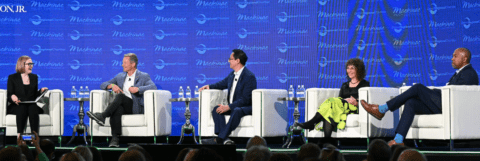Guskiewicz said that while the current state of talent is commendable, he urges continuous forward-thinking to improve it further. This proactive approach ensures that today’s students and tomorrow’s talent are well-equipped for future job opportunities.
“What are we doing to prepare students and graduates for jobs and careers of the future? This year’s graduates graduated in 2024, but they’re going to be retiring from their careers in the year 2074, perhaps. What jobs and careers are going to exist then?” he said. “And so, we have to be thinking ahead about what will be needed for that future talent pool, and I think that’s what each of our universities is trying to do right now.”
The university presidents revealed various strategies they employ to ready the future talent pool. These include early exposure of students to companies and partners for better career insight and debunking myths about higher education for public awareness.
Pink cited exposure as a great way to keep college graduates in Michigan, stating that “the more we can focus on getting them connected to incredible businesses that we have here in the state prior to graduation … we have a better opportunity to keep them here.”
Pescovitz explained the importance of educating individuals about the significance of college and the attainability of accessing it, emphasizing its affordability—a proactive measure to expand the talent pool.
“It’s not just educating [students], but it’s educating the world outside of your institutions,” Pescovitz said. “It’s really important that we dispel the myths of the [Michigan Voter Poll] because when [the public hears] about that, they hear that college is not important; it’s not necessary for jobs. Let’s dispel that.”
Plus, it’s crucial to dispel those myths because, in Michigan, 37 out of the 50 hottest jobs of the future require a four-year degree.
“That’s not just important for the students. That’s important for the businesses, and that’s important for the economy,” she said.







